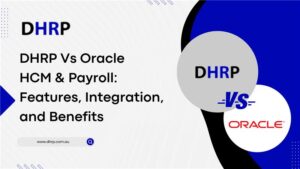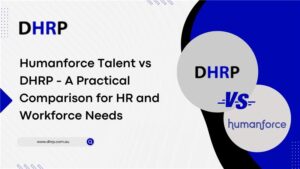When running a business, you are not thinking of a few years ahead. But you are dealing with the decades to come. Now, to run the operations smoothly, you need an ecosystem like Microsoft Dynamics 365. Open a new tab on any browser or talk to an expert, and you will always find Microsoft launching something new for D365.
They just keep assuring that your business is facilitated in the best way possible. So, be it new updates, modules, or feature updates, Microsoft Dynamics 365 is ready to scale with your business.
With this level of competitiveness, competitors are going to talk, and some might intentionally or unintentionally spread some misconceptions.
If you are a victim of such misconceptions, we are here to clear them all. Let’s talk about them in this article.
Common Myths about Dynamics 365 And Their Truth
Are you hearing conflicting opinions about Dynamics 365? Not sure what’s true and what’s just a myth?
Don’t get stuck into the rumours and misconceptions about Dynamics 365 and clear the Truth about Microsoft D365 now with us:
Dynamics 365 is Hard to Customise and Configure
Is Dynamics 365 difficult to use? Have you really tried it?
The D365 interface is consistent across all business applications/power platforms; therefore, the form design is consistent with all of your other Microsoft products. Even better, the interface follows a ‘no code-low code’ strategy, allowing non-technical resources to customise and configure the platform.
Furthermore, continual training (including free certification and app development short courses), support, and an abundance of online resources can assist your personnel in expanding their knowledge base and becoming experts in their industry.
Dynamics 365 is Only for Large Enterprises
ACFA reportedly reduced daily administrative tasks by 40% when converted to Dynamics 365. The Australian Financial Complaints Authority (AFCA) was founded in 2018 and is an independent organisation.
They crossed 700 team members in 2022 and are increasing. However, the fact that the organisation benefited from Dynamics 365 shows us that regardless of the size of your company, if you do it right, d365 is useful for you in many ways.
Dynamics 365 Cannot Scale to Support Change in Business Needs
Microsoft Dynamics 365 was designed to provide maximum flexibility and scalability. A well-scaled system will maintain or improve performance levels or efficiency when subjected to higher operational demands. The application’s design promotes the growth, evolution, and transformation of your business. How? Here it is:
- It includes both Customer Relationship Management (CRM) and Dynamics 365 ERP. You select only the capabilities you require and then simply add apps as needs change.
- It's crucial to remember that you can scale to accommodate increased transaction volumes and consumers.
- As businesses grow, they accumulate more data in databases, which may eventually slow them down. To avoid this, Microsoft delivers a system that is accessible from anywhere and at any time via the Microsoft Azure platform, which includes comprehensive data capabilities.
Dynamics 365 Doesn’t have Strong Industry Experience
Name the industry and see how D365 is ready to use CRM.
There is a ready-made set of industry accelerators for Dynamics 365.
Be it retail, manufacturing, education or even non-profit organizations, D365 offers comprehensive solutions for each of them. With recently added AI and Copilot capabilities, it in fact more feasible for any industry then ever.
Running in the Cloud will be More Expensive
For some, this may be the case. But we frequently compare apples to pears. For example, Dynamics 365 pricing for Finance and Operations has unrivalled security and compliance safety measures, which are likely considerably superior to what your current hosting partner can offer.
Shifting from a CAPEX (Capital Expenditure) model to an OPEX (Operating Expenditure) subscription makes costs more visible, especially for customers who have discontinued their BREP (Business Ready Enhancement Plan). However, in most cases, this does not necessarily mean an increase in overall costs—though each customer’s situation is unique.
Microsoft is Sealing the Application, so the System can No Longer be Customised
The reality is quite different. Dynamics 365 is more open than ever, thanks to extensions, AI-powered capabilities, the event-driven model, Dataverse (formerly Common Data Service), and custom services.
Yes, Microsoft enforces certain best practices, meaning you can’t modify core system code—for example, directly altering VAT calculation logic. However, this is a good thing, as it ensures system stability, security, and easier upgrades.
While some types of customizations might be more expensive, this also means avoiding low-quality, short-term fixes that were previously done through overlaying—often leading to maintenance issues down the line.
Bottom Line
Are you stuck on the common misconceptions about D365? Well, maybe you started on the wrong foot, but you can set the direction with the right Microsoft partner. We at DHRP are here to guide you to the right path.
From CRM consultation to Dynamics 365 implementation and even customisation, our team is here to offer everything you need.
With our expertise, you can streamline operations and enhance customer engagement effortlessly. Let’s turn challenges into opportunities with the right D365 solutions.



































































































